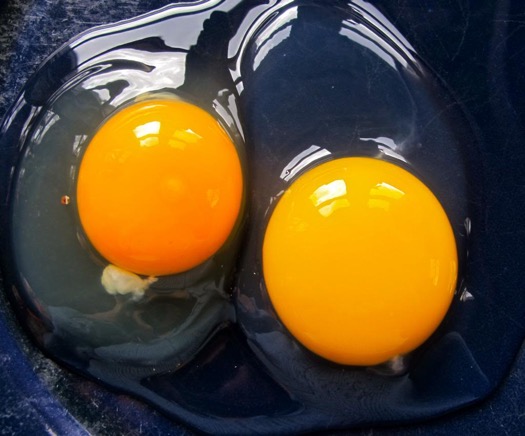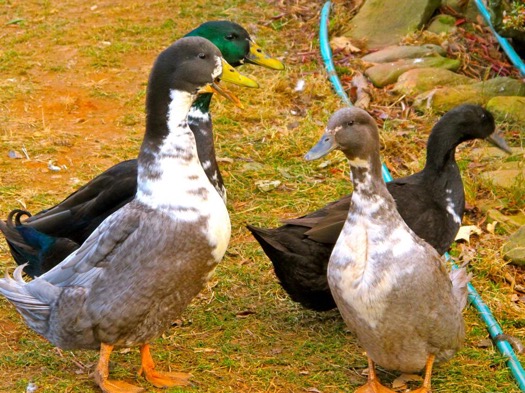Hen vs Duck Eggs: Important Similarities and Differences

Duck and hen eggs taste very similar, and most of us wouldn’t notice a difference at first glance. However, there are some important distinctions between hen and duck eggs that are worth bringing up. Each have their strengths and limitations, and knowing these differences can help you to plan your homestead and ability to become more self-sufficient.
Fresh Eggs
Keep in mind these comparisons are based on fresh, home-raised eggs, not store-bought or commercial products. They came from mostly free-range and organic farms. So, these observations may help you to choose the right birds for your particular needs.
Hens can generally lay between three and seven eggs per week. Ducks can lay an egg every day. Duck eggs are also larger, have thicker shells and a richer flavor. Ducks are also more resilient than chickens, and many argue that they are more agreeable as well. Ducks also get more of their dietary intake from foraging for food than eating prepared feed. Ducks also need water, either in the form of a pond or a large wading pool. Chickens do not. Chickens can also take up less space and be easier to contain. So, you can get production rates that are about the same if you have a good amount of chickens as well as ducks.
Benefits of Free Range
We hear a lot about free range, and it’s important to know what that means for you if you are going to be using chickens or ducks on your property. Free range is supposed to mean that the chickens and ducks forage for their own food or are allowed to peck at feed that’s scattered over large areas. This gives chickens freedom to move, get exercise, develop social skills and help to diffuse tensions. Chickens are ornery, and they need some breathing room. However, they don’t need as much space as ducks.
Ducks prefer to flop in water, fly to a nice patch of land and start waddling and pecking at insects on the ground. They also prefer to eat various grasses as opposed to garden vegetables. Consequently, you don’t need to defend your garden against ducks as much as you do with chickens. In both cases, it’s important to build houses, shelters, runs and habitats that will be conducive to what the birds need in order to thrive.
Free range also gives the birds access to a more balanced diet as they are eating things they would normally be if they were totally wild. Consequently, everything from the quality of their eggs and production rates to their meat when the time comes relates to the quality of their diet. Free range birds are by far healthier and more useful on the homestead.
Fresh Eggs are Best

Both duck and chicken eggs also share something else in common: They are far more nutritious and beneficial than store-bought and pasteurized alternatives. They can contain up to a third less cholesterol, 5 times more vitamin D, almost twice as much vitamin A, up to three times the amount of vitamin E and a two-fold increase in omega fatty acids.
Consequently, if you can start raising chickens and/or ducks, consider doing so. You can be making one of the best contributions to your ability to be self-sufficient, and it’s easier to get started than you think. Healthier and stronger hens produce more eggs for longer periods of time. That’s why it’s so important to choose the bird that will work best based on your circumstances in order to maximize production and promote their overall health and well-being.


